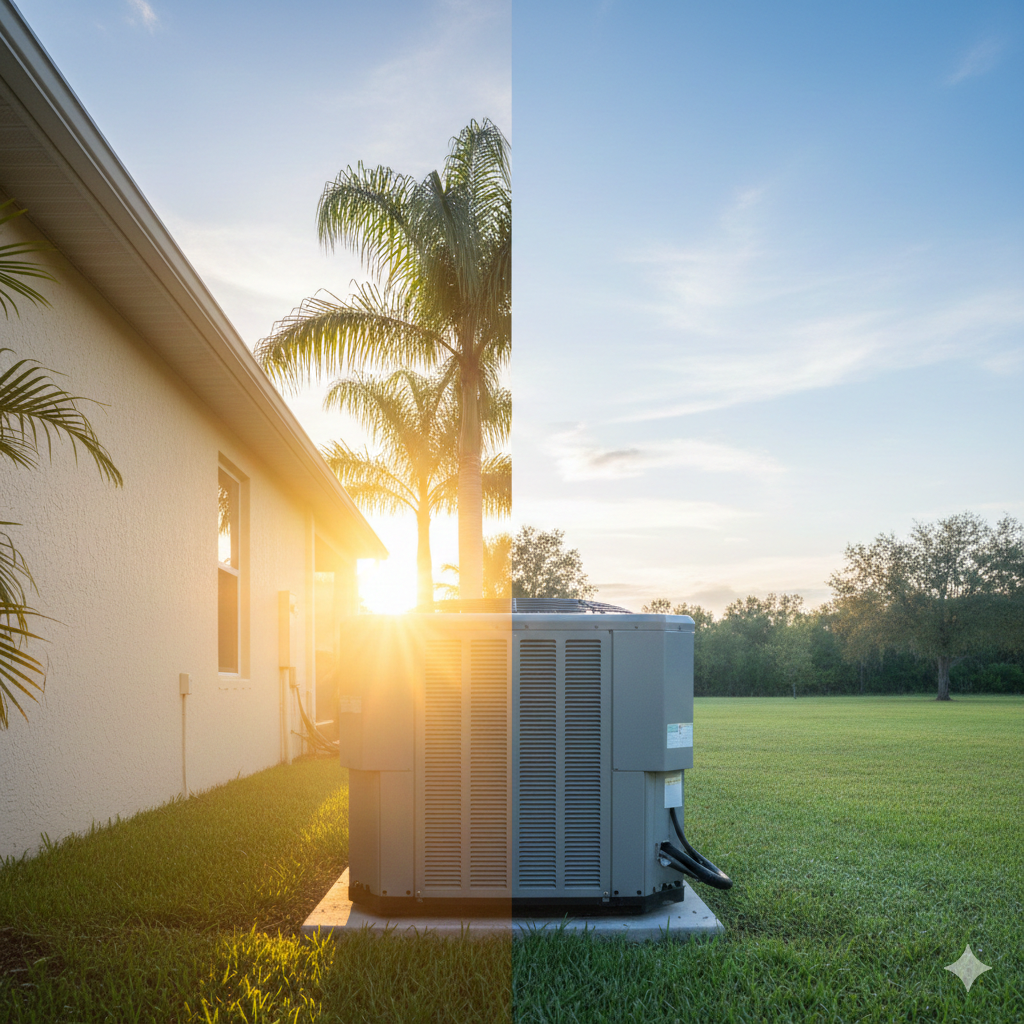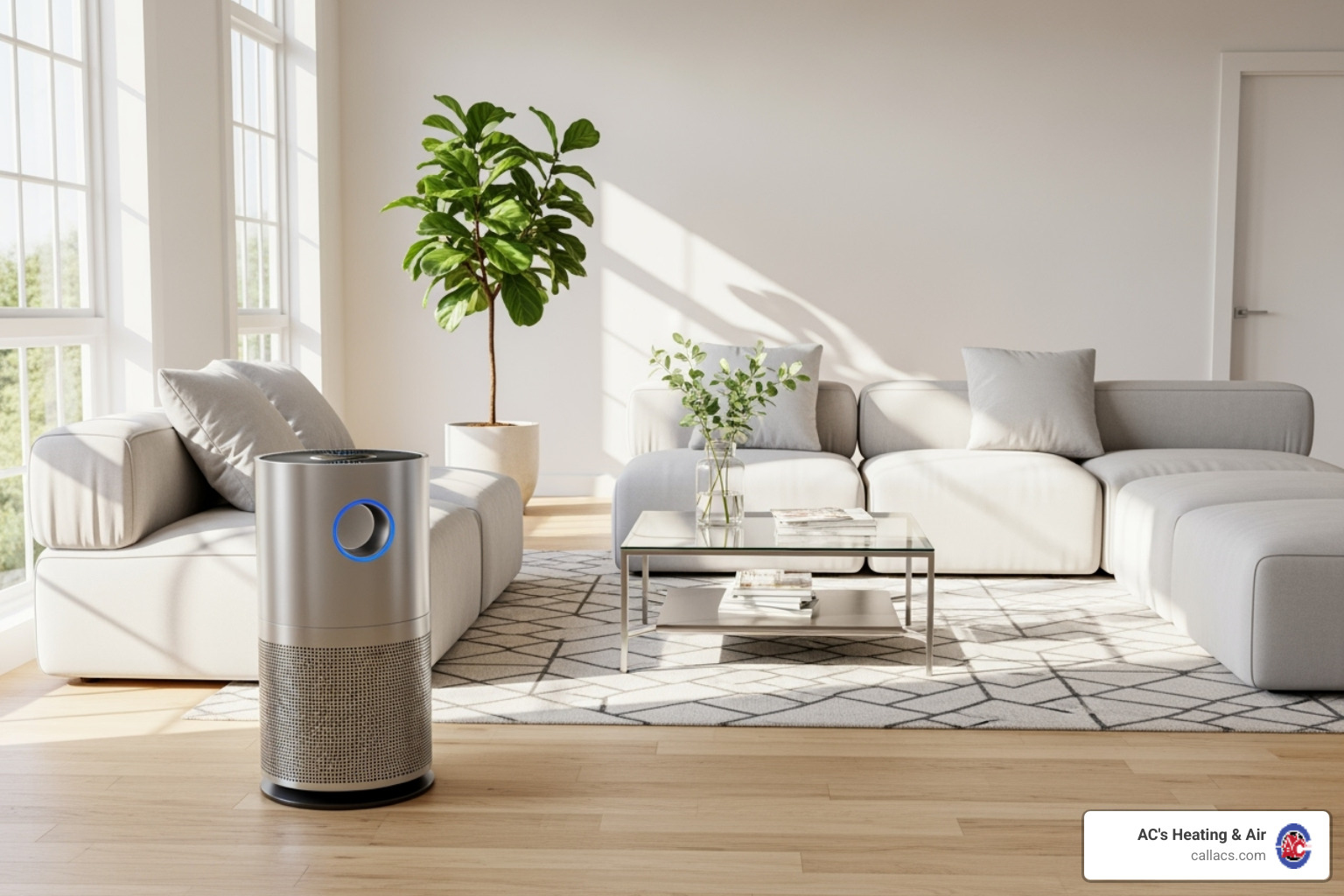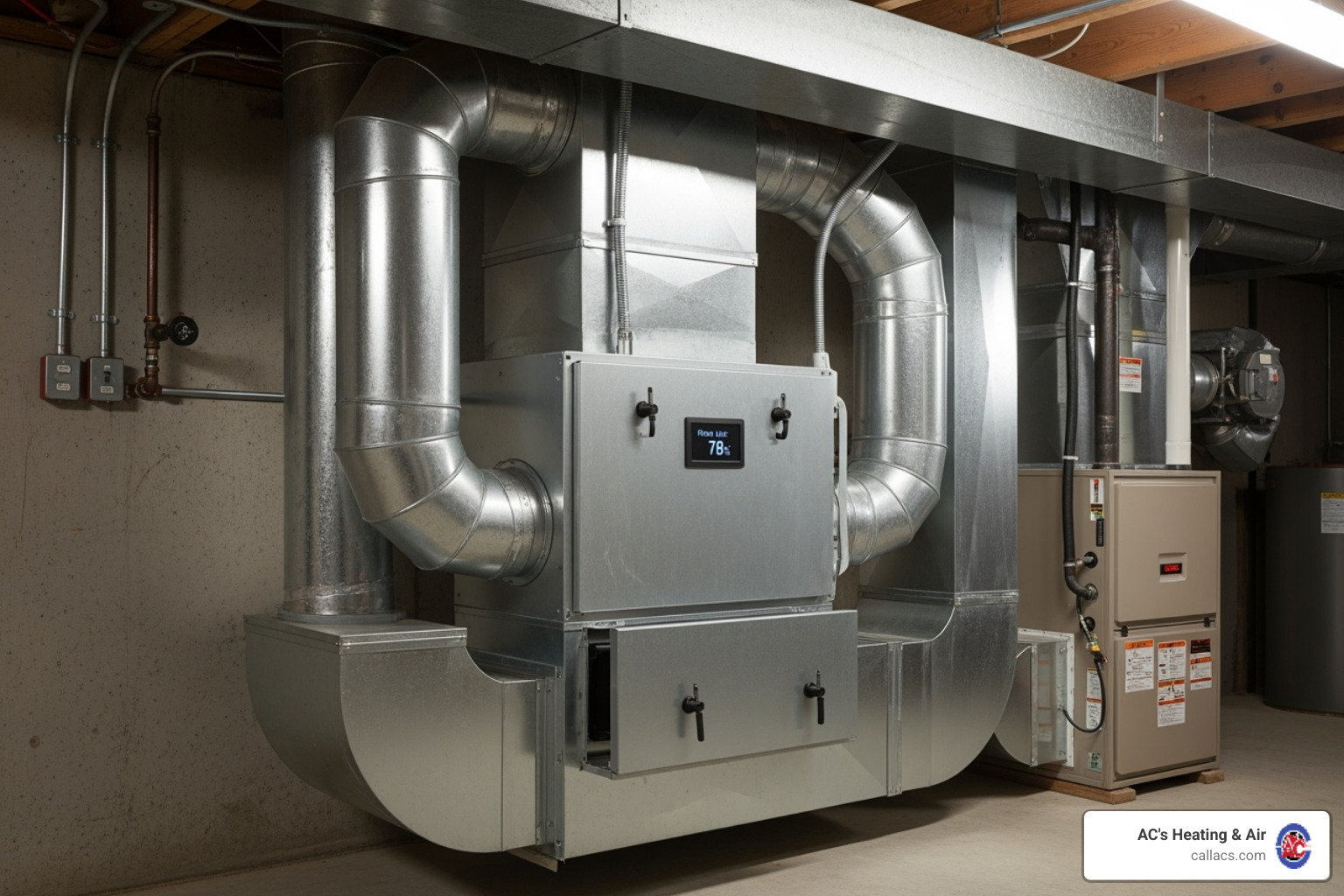Cool Home, Happy Life: Easy AC System Maintenance Tips
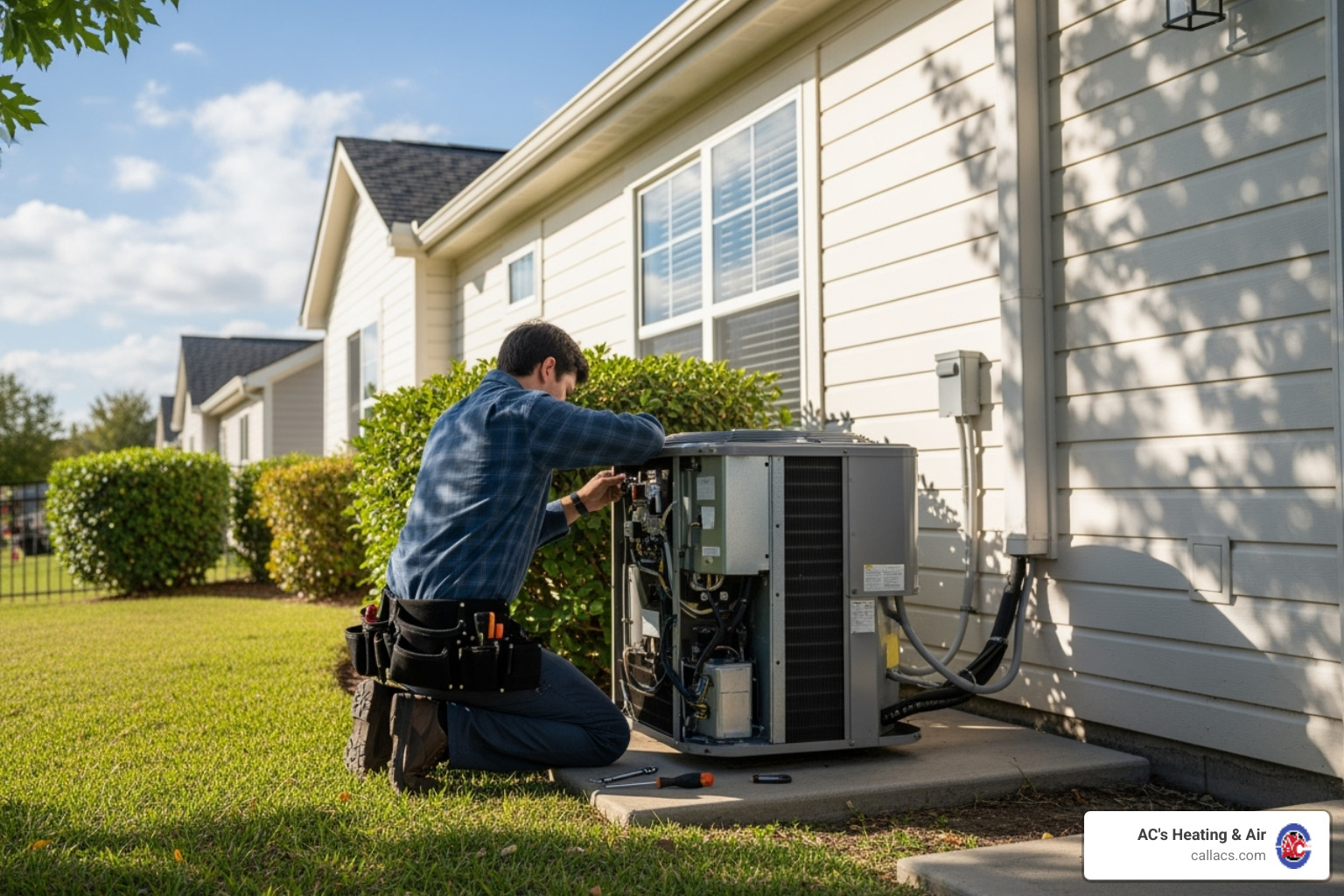
Why Home AC System Maintenance Keeps Your Florida Home Comfortable Year-Round
Home AC system maintenance is the key to keeping your Central Florida home cool, comfortable, and energy-efficient. Regular care can reduce your energy bills by up to 15%, extend your AC's lifespan, and prevent costly breakdowns when you need cooling most.
In Florida's demanding climate, where AC systems run almost year-round, consistent care is critical. Like any mechanical system, air conditioners need regular attention to run smoothly. Many essential maintenance tasks are simple enough for homeowners to handle, while others require professional expertise.
I'm Allen Chenault, owner and founder of AC's Heating & Air LLC. With over 20 years of HVAC industry experience, I've seen how proper home ac system maintenance saves Central Florida homeowners thousands in repairs while keeping their families comfortable during our hottest months.
Essential home AC system maintenance includes:
- Monthly filter checks and replacement every 1-3 months.
- Outdoor unit cleaning by clearing debris and maintaining a 2-foot clearance.
- Indoor component inspection of the thermostat, evaporator coil, and condensate drain.
- Professional tune-ups for refrigerant levels, electrical connections, and deep cleaning.
- Monitoring for warning signs like warm air, weak airflow, or unusual noises.
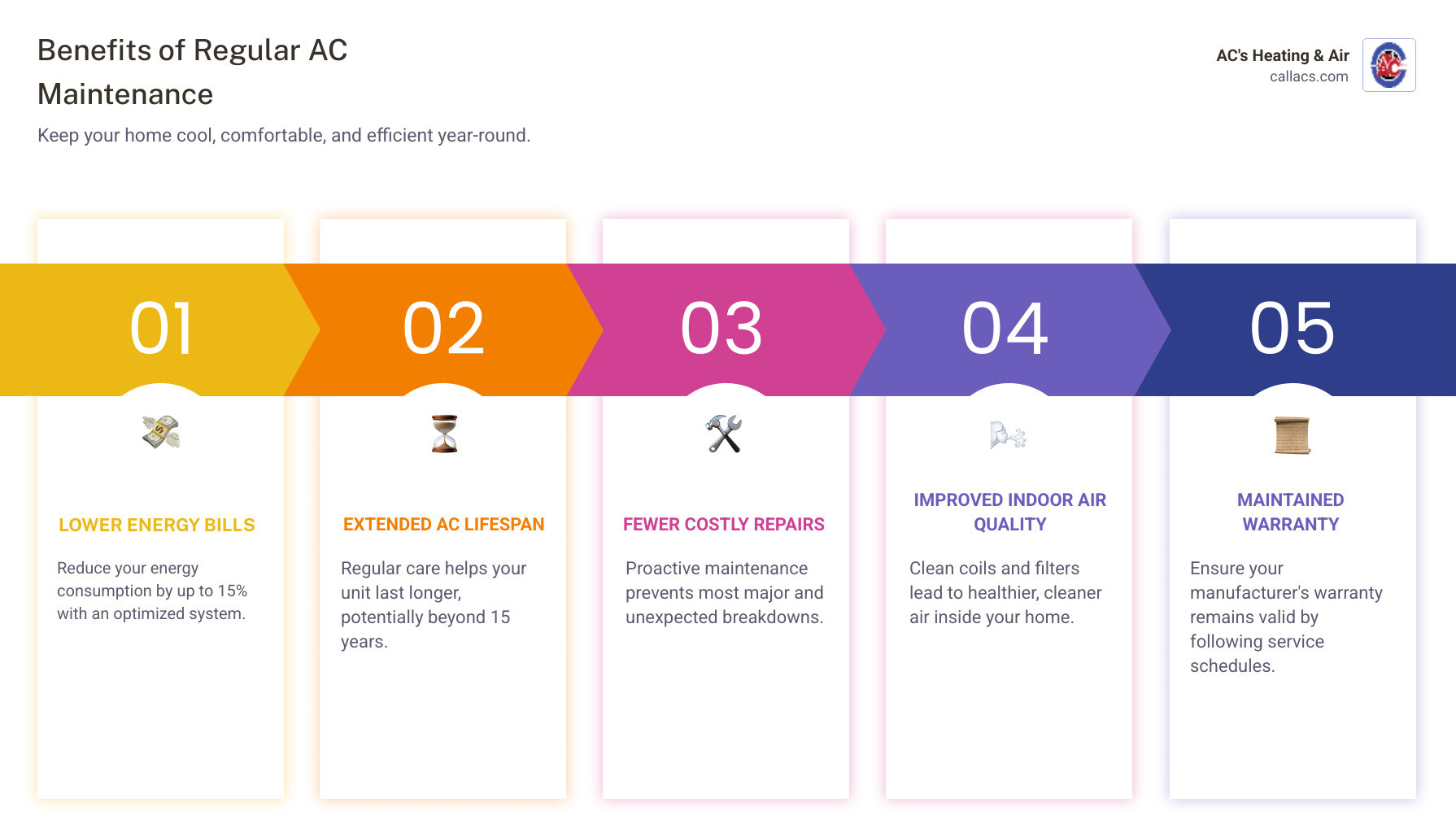
Home AC system maintenance word guide:
Why Regular AC Maintenance is a Smart Investment
Home AC system maintenance is one of the smartest investments a Florida homeowner can make. Let's start with the most immediate benefit: improved efficiency that leads to lower utility bills. A clean, well-maintained AC system doesn't have to work as hard to cool your home. A dirty filter alone can increase energy consumption by up to 15%. Clean coils, fresh filters, and proper refrigerant levels allow your system to operate at peak performance, saving you money with every cooling cycle.
Regular maintenance also extends your AC's lifespan. Your air conditioner is a significant investment, and routine care helps you avoid the massive expense of a premature system replacement.
Another key benefit is fewer costly repairs. During maintenance visits, technicians can catch small issues before they become expensive emergencies. A slightly loose electrical connection or minor refrigerant leak is an affordable fix compared to a major breakdown on a sweltering afternoon. For example, preventing a clogged filter on the compressor can save you from thousands in damage.
Better indoor air quality is another huge benefit. Your AC filters out dust, allergens, and other particles. A neglected system can become a breeding ground for mold and mildew, leading to issues like a musty smelling AC unit and poor air quality. Regular cleaning ensures the air your family breathes is healthy.
Finally, most manufacturers require annual professional maintenance for warranty protection. Skipping tune-ups could void your warranty, leaving you responsible for expensive repair costs. When you consider all these benefits, regular home AC system maintenance is an easy decision for protecting your investment and your family's comfort.
Your Essential DIY Home AC System Maintenance Checklist
Taking an active role in your home AC system maintenance can save you money and keep your system running smoothly between professional visits. While some tasks are best left to experts, there's a lot you can do yourself.
Safety First: Before touching your unit, always turn off the power at both the exterior shut-off box and the main breaker box inside your home. This prevents accidental startups and ensures your safety. Perform these checks seasonally, ideally in the spring before the Florida heat arrives.
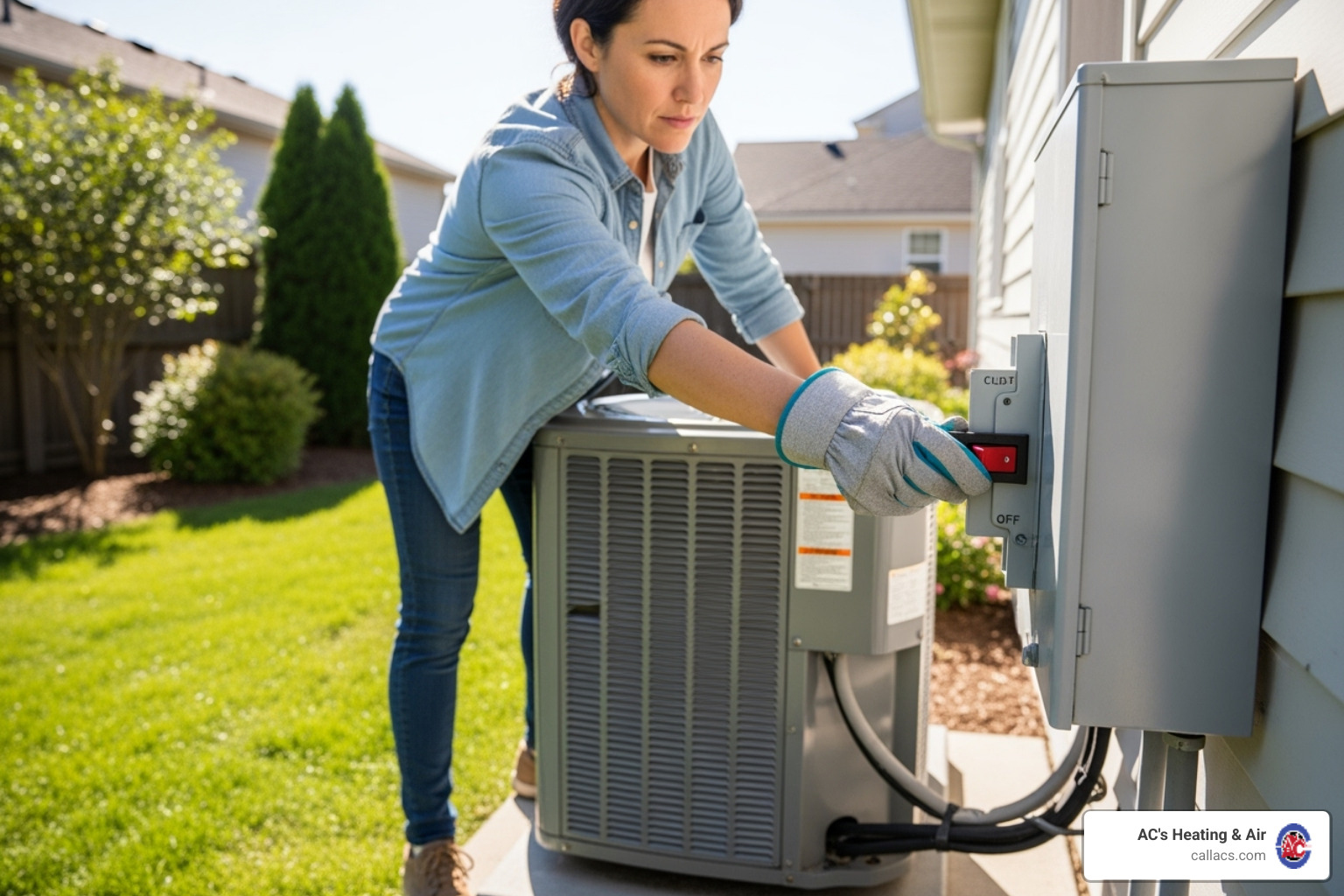
Step 1: The Importance of Regular Filter Changes for Home AC System Maintenance
Changing your filter is the simplest, most crucial step in home AC system maintenance. It's your first line of defense against dust, pollen, and dander. Filters are either disposable or reusable (washable) and have a MERV (Minimum Efficiency Reporting Value) rating, which indicates their effectiveness. For most homes, a MERV rating between 1 and 12 is sufficient, but always check your unit's manual for the recommended type to ensure proper airflow.
Check your filters monthly, especially during Florida's long cooling season. Replace disposable filters every 1-3 months, or more often if you have pets or allergies. A clogged filter reduces airflow, forcing your system to use up to 15% more energy and can even lead to a clogged filter that can damage your compressor. To change it, locate the filter slot, note the airflow arrow on the old filter, and slide the new one in with the arrow pointing in the same direction. For more details, see our HVAC Filter Replacement Schedule.
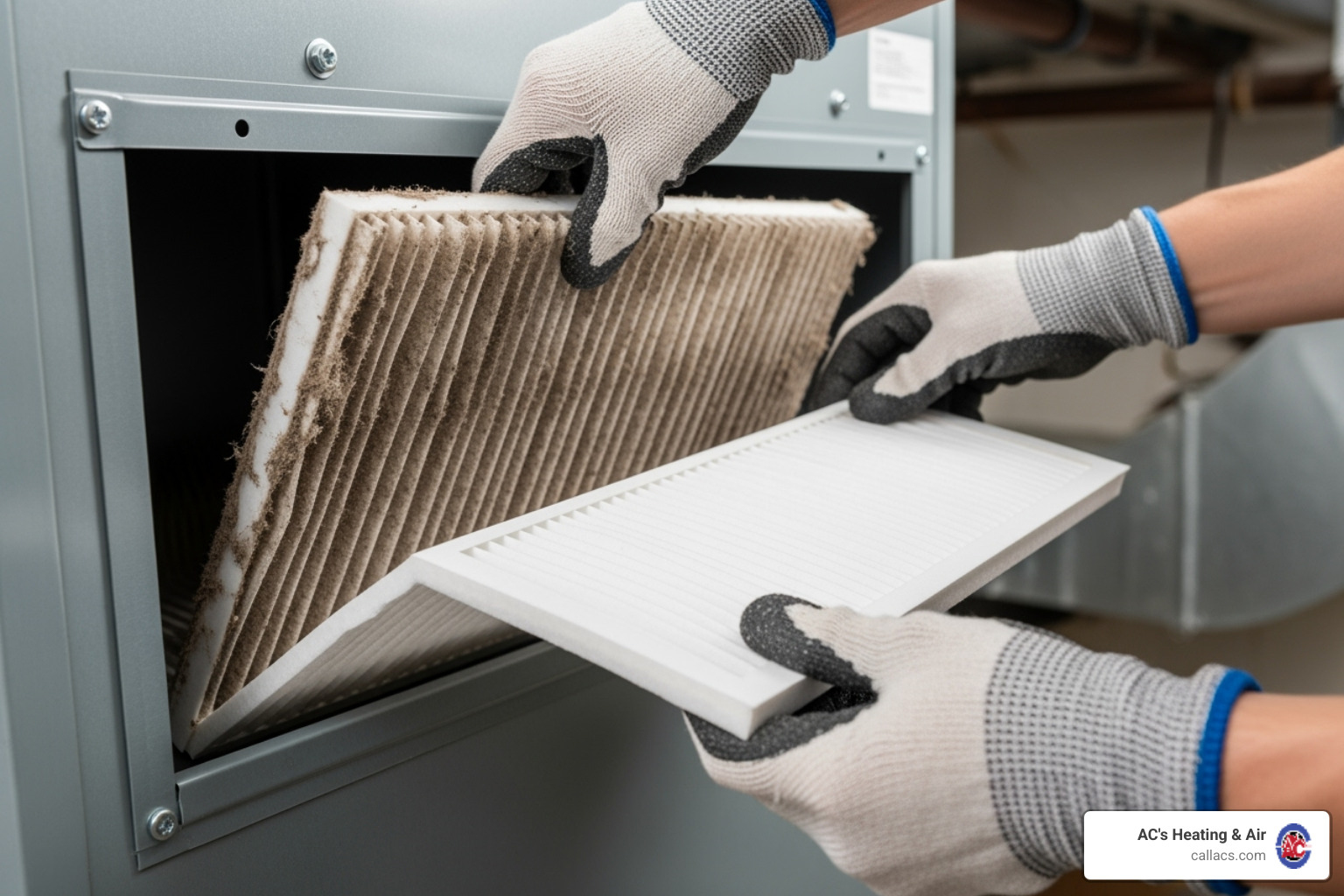
Step 2: Clean the Outdoor Condenser Unit
Your outdoor condenser unit works hard in the Florida sun. Debris like leaves, grass, and dirt can reduce its efficiency. After turning off the power, clear at least two feet of clearance around the unit by trimming back plants and removing any trash.
Next, clean the condenser fins (the thin metal slats). Use a soft brush or a shop vacuum to remove surface dirt. For a deeper clean, gently spray the fins from the inside out with a garden hose. Important: Never use a pressure washer, as it can bend the delicate fins and harm your AC's efficiency. If you see bent fins, you can gently straighten them with a butter knife or a fin comb. Also, check that the unit is level to prevent premature compressor failure.
Step 3: Inspect and Clear the Indoor Components
Your indoor components circulate cool air throughout your home. Start with the thermostat, ensuring it's set to "cool" and at the right temperature. If you have an older model, consider upgrading to a smart thermostat to optimize comfort and energy savings.
The evaporator coil, located in your indoor air handler, is where cooling happens. While deep cleaning is a job for pros, you can gently dust any visible surfaces with a soft brush.
Next, check the condensate drain line. This line removes humidity and can get clogged with algae, causing water damage or an AC freeze-up. You can clear minor clogs by flushing the line with a mild bleach and water solution (1 cup bleach per gallon of water) or by using a wet/dry vacuum to suction out blockages.
Finally, inspect visible ductwork for leaks. Leaky ducts can lose up to 30% of airflow, wasting cool air. Seal small gaps with foil tape or HVAC sealant, but call a professional for larger issues.
When to Call a Professional for AC Repair or a Tune-Up
While DIY maintenance is beneficial, some tasks require the expertise of a professional HVAC technician. It's always safest to call a pro for anything involving electrical components or refrigerant handling. AC units contain high-voltage parts, and refrigerant is a specialized chemical that requires certified handling. If a problem persists after your DIY efforts or feels beyond your comfort level, it's time to call for help. For more guidance, see our AC Troubleshooting Tips.
Warning Signs Your AC Needs More Than Basic Home AC System Maintenance
Your AC will often signal when something is wrong. If you notice any of the following signs, your system needs professional attention to prevent a major breakdown:
- Blowing warm air: Could indicate low refrigerant or a compressor issue.
- Weak airflow: May signal a clogged filter, a blower motor problem, or ductwork issues.
- Frequent cycling: If your AC turns on and off too often, it could be a sign of a refrigerant leak or electrical problems.
- Unusual noises: Banging, squealing, or grinding sounds can indicate loose parts or motor issues.
- Strange odors: A musty smell can mean mold, while a burning smell suggests an electrical problem.
- Water leaks: Pooling water around your unit usually points to a clogged condensate drain line.
- Sudden spike in energy bills: This is a clear sign your AC is running inefficiently due to a mechanical problem.
Persistent issues might mean it's time for a replacement. Check our guide on 5 Signs It's Time for a New AC Installation.
What a Professional AC Tune-Up Includes
An annual professional AC tune-up is essential for comprehensive home AC system maintenance, especially in the spring before the Florida cooling season. A certified technician performs a thorough check-up that goes far beyond DIY tasks. A typical tune-up from AC's Heating & Air includes:
- Checking refrigerant levels and repairing any leaks.
- Testing and tightening all electrical connections to ensure safe operation.
- Lubricating moving parts like motors and bearings to reduce friction and wear.
- Deep cleaning both the indoor evaporator and outdoor condenser coils.
- Inspecting the blower motor and fan for optimal airflow.
- Verifying thermostat calibration for accurate temperature control.
- Inspecting visible ductwork for leaks that reduce efficiency.
- Clearing the condensate drain line to prevent water damage.
- Testing all system controls and safety mechanisms.
Investing in a Pre-Season HVAC Tune-Up keeps your system running efficiently, maintains your warranty, and saves you money on future repairs.
Central AC vs. Window Unit: Key Maintenance Differences
Whether you have a central AC system or a window unit, both require regular care to run efficiently. However, their designs mean their maintenance needs differ. Understanding these distinctions is key to effective home AC system maintenance for each type.
A central AC system is a complex network with indoor and outdoor components and extensive ductwork, while a window unit is a self-contained appliance. This means tasks like ductwork inspection are unique to central systems, while sealing window gaps is specific to window units.
Frequently Asked Questions About Home AC Maintenance
Here are answers to some of the most common inquiries we receive about home AC system maintenance.
How often should I really change my AC filter?
While the general guideline is every 1-3 months for disposable filters, the ideal frequency depends on several factors. Your filter type (1-inch vs. 4-inch media), its MERV rating, and your household lifestyle all play a role. Homes with pets, allergies, or smokers will require more frequent changes, often monthly. In Central Florida, our long cooling season also means filters get dirty faster. The best practice is to check your filter monthly and change it if it looks dirty.
How does maintenance directly impact my energy bills?
Regular home AC system maintenance directly lowers your energy bills by improving efficiency. When components like filters and coils are dirty, your AC has to work harder and run longer to cool your home, increasing energy consumption by up to 15%. This extra strain means your system operates far below its official SEER (or EER) rating. Professional maintenance keeps all parts clean and calibrated, ensuring your system uses the least amount of energy possible, which is a key part of AC Efficiency Improvement.
What tools are needed for basic DIY AC maintenance?
For most DIY home AC system maintenance tasks, you only need a few basic tools. A good list to have on hand includes:
- A screwdriver set
- A shop vacuum (wet/dry vac)
- A garden hose with a spray nozzle (never a pressure washer)
- A fin comb or butter knife for straightening coil fins
- Work gloves and a soft brush
- A supply of new air filters
- A mild bleach and water solution for the condensate line
Stay Cool and Save Money with Consistent Care
In Central Florida, a well-functioning AC is a necessity. Consistent home AC system maintenance is a smart investment that pays off in comfort, energy savings, and a longer life for your cooling system.
By tackling simple DIY tasks like changing filters and keeping your outdoor unit clean, you can significantly boost your AC's efficiency. However, some jobs involving electrical work or refrigerants are best left to the pros. It's also crucial to watch for warning signs like warm air or strange noises to address problems early.
A proactive approach that combines your own DIY efforts with annual professional tune-ups is the best way to extend your AC's life, improve air quality, and save money on costly emergency repairs.
At AC's Heating & Air, we are passionate about keeping our neighbors in Apopka, Winter Park, Orlando, and throughout Central Florida cool. Our team offers custom HVAC maintenance plans to keep your system running reliably. Don't wait for a breakdown on the hottest day of the year!
Schedule your professional AC maintenance service today! Let us help you keep your home cool and comfortable, season after season.

